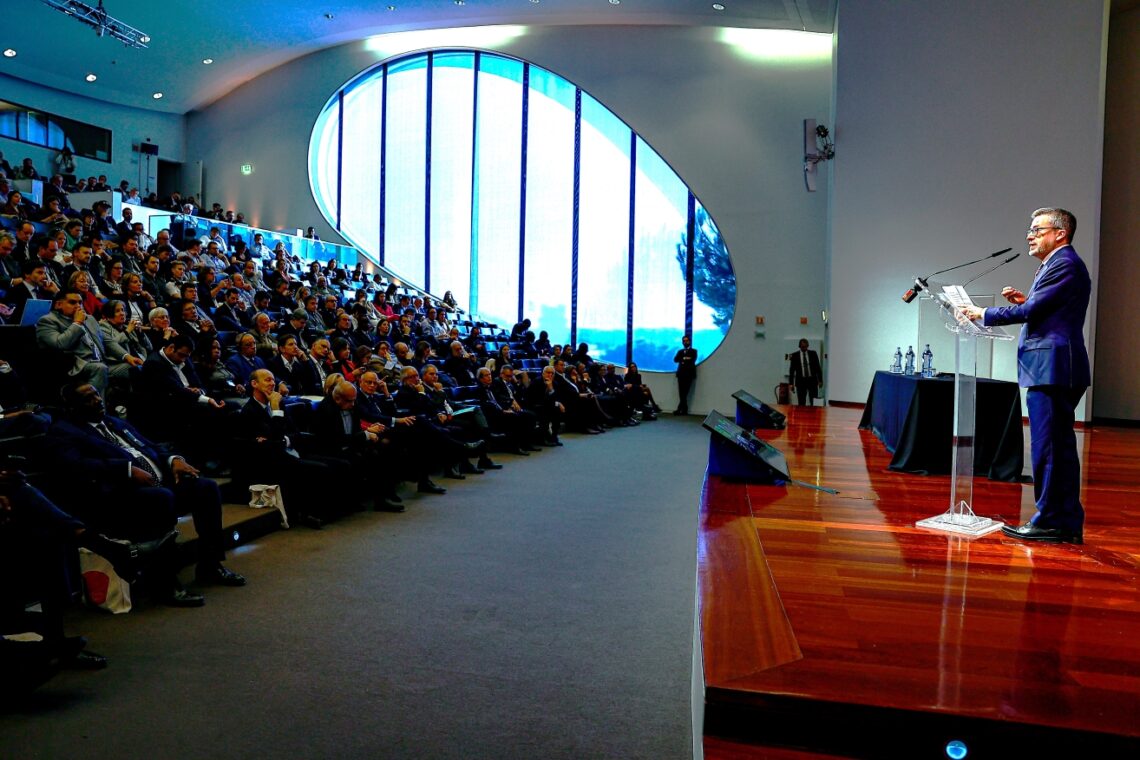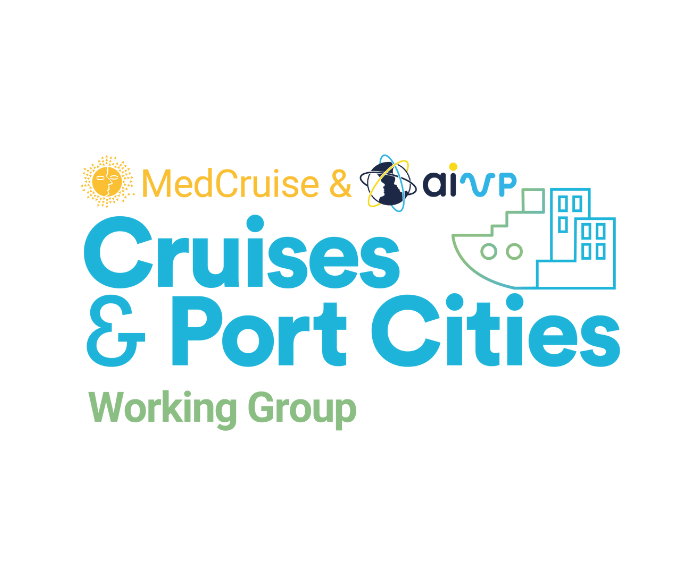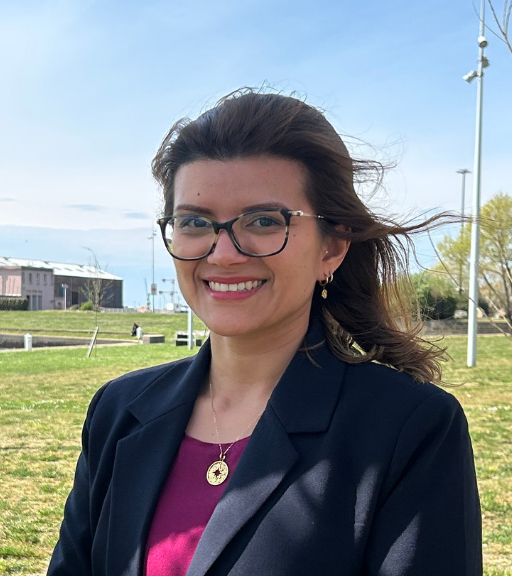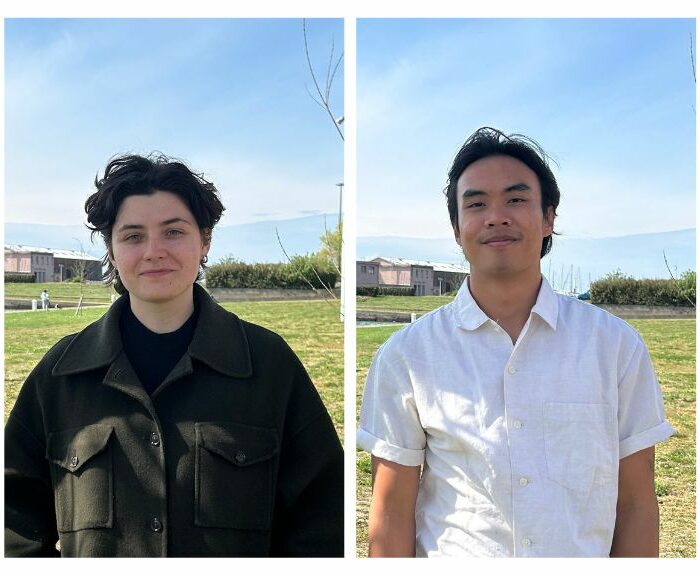The 19th World Conference Cities and Ports, organized by the International Association Cities and Ports (AIVP) in cooperation with Port Authority of Lisbon, concluded with resounding success, drawing over 400 participants, almost 100 speakers, from more than 50 countries. Held from the 27th to the 29th of November at the Champalimaud Foundation in Lisbon, Portugal, this year’s conference demonstrated the vital role of collaboration in addressing the challenges and opportunities at the intersection of cities and ports.
Under the theme “Open Piers: Steering flows between people, planet, and port cities,” the event provided a platform for engaging discussions, innovative ideas, and actionable strategies to align port development with urban sustainability goals.
Conference Highlights
The conference featured a rich program of keynote addresses, expert panels, workshops, and site visits, all designed to foster global dialogue and knowledge sharing.
AIVP General Assembly: On the 27th of November, the AIVP members renewed their board, confirming Mr. Edouard Philippe as president and Mr. Mohamed Ouanaya, as their treasurer, and chosing Mr. Alberto Cappato as the new vice president of AIVP, and Ms. Francesca Morucci as the new secretary general.
Ratification of the AIVP Agenda 2030: On the first day of the conference the mayors of Lisbon, Mr. Carlos Moedas, and Oeiras, Mr. Isaltino Morais, the President of the Port Authority of Lisbon, Mr. Carlos Correia, and the first secretary of Lisbon’s Metropolitan Area, Mr. Carlos Humberto de Carvalho, ratified with the president of AIVP, Mr. Edouard Philippe, the Agenda 2030 demonstrating their commitment for a sustainable port city territory.
Prize Antoine Rufenacht: The program of the conference also included the AIVP Prize Antoine Rufenacht winner announcement ceremonyon the evening of the 1st day. The Development Company for the Reconversion of Tangier City Port area (SAPT SA) was declared the winner and HAROPA PORT received a Jury’s Special Mention for the Reconversion project of Javel Bas Port.
Keynote Insights: steered by AIVP’s president, Mr. Edouard Philippe, international, regional, and local leaders showcased the different strategies being developed to respond to different challenges, particularly climate change and the energy transition, as well as the protection of the oceans. It was demonstrated that port cities have a great responsibility but also the capacity to develop and deploy innovative solutions, but also require the appropriate financing mechanisms.
3rd UN Ocean Conference: One of the key messages presented during the conference was the relevant role port cities must have in global discussions, particularly in the forthcoming UN Ocean Conferencethat willtake place in Nice, France, in June 2025 and the Ocean Rise Coalition, respecting its particularities compared to other coastal settlements.
Parallel tracks: The conference included 6 parallel tracks, each with numerous speakers and experts, sharing experiences from all over the world, from the Philippines to Argentina, from Canada to Senegal, or Latvia to Brazil, just to name a few. The main topics were:
- Cruises and Mobility
- Port City Interface and Climate Change
- Culture and Governance
- Blue Economy and Innovation
- Energy Transition and Circular Economy
- Environment and Biodiversity
Site Visits: During the conference, the participants had the opportunity to visit key waterfront locations where the parallel tracks took place, including Lisbon Cruise Terminal, the Maritime Station of Alcântara, the nautical School Infante D. Henrique and the Electricity Museum of EDP, known as Maat Central.
MoU between the Ports of Vigo and Lisbon. Both ports signed an MoU to foster cooperation between them, including also the Port of Setúbal.
Technical Visits. The participants enjoyed technical visits to the ports of Lisbon and Setúbal and experienced the new electric ferries for crossing the Tagus river.
Outcomes
This year’s conference reinforced AIVP’s global mission to advance sustainable urban and port development. Key ideas discussed during the final Port City Debate session focused on:
Implementing Just Transitions: regardless if we discuss the energy transition, the increased use of data or social challenges, these transitions must take place in a just way, locally and globally.
Nature-positive Interventions: port city projects must add value to the local context, beyond economic impact, whether it is on sea or land, in cooperation with port city communities
“Coopetition”: While the port and maritime business is competitive by nature, it is crucial to foster knowledge sharing that can contribute to addressing global sustainable goals.
Value-based ecosystems: New, innovative forms of port city governance are required, offering multistakeholder and multi-scalar approaches.
Cross-border planning: Establish adaptive strategies on different time frames (short, medium, long-term) that can be modified, responding to evolving scenarios.
New Mindsets: Society increasingly demands access and relation to water bodies. This increases the pressure on port city actors but is also an opportunity to foster the maritime culture and a sense of belonging to a port city community.
Capacity Building: The green and blue transition requires capacities, training, and new assessment tools for the local workforce but also for the broader port community.
Looking Forward
The 19th World Conference Cities and Ports concluded with the announcement of the 20th edition of the event, to take place in New York City, USA. The 2025 edition will be prepared in cooperation with the NYC Economic Development Corporation, and it is expected to happen in mid-November 2025.
The AIVP invites stakeholders to continue the conversation and explore resources from the conference at https://www.aivp.org/





